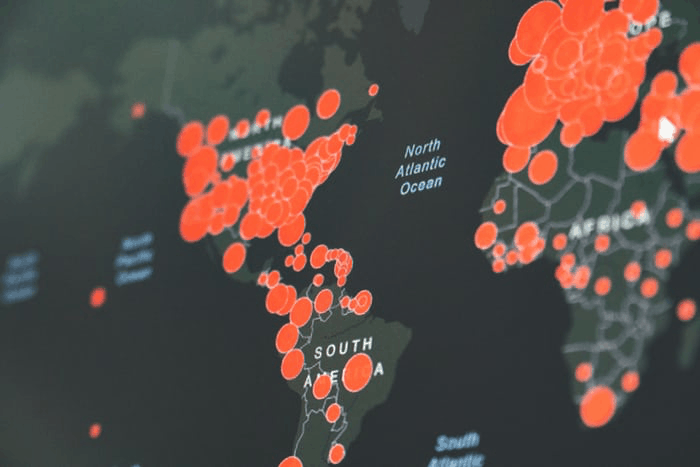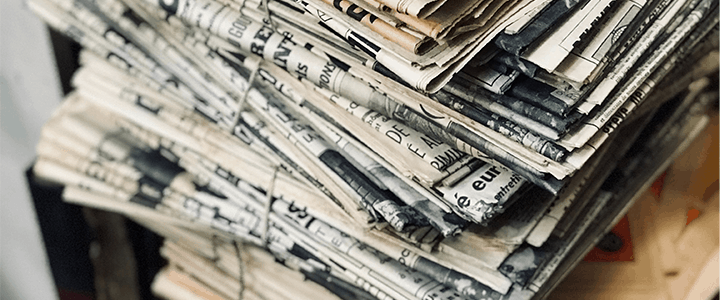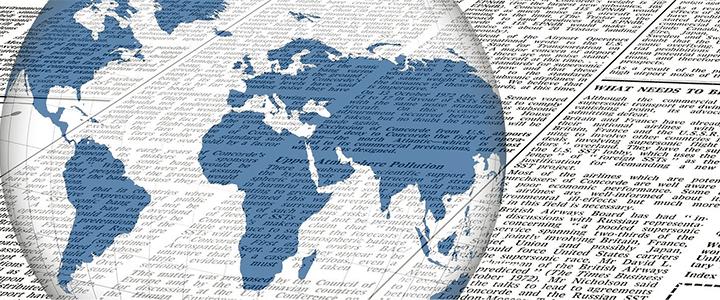Free Expression in the Time of Coronavirus

In the face of the global health crisis posed by the spread of COVID-19, PEN America is, like so many others, adapting to the new reality we must face together. As an organization committed to truth and facts, we believe it is imperative to prioritize public health while also safeguarding protections for free speech and the flow of vital information. We also believe that this crisis is making plain the absolute necessity of a free press—including local journalism—to ensure public well-being and enable informed decision-making.
We recognize that in these unprecedented times, some infringements on liberty may be necessary to preserve public health; for example, government orders to self-isolate. At the same time, we also recognize that emergencies can provide cover for crackdowns on human rights and lasting expansions of government power. And even well-intentioned, extreme measures that may be currently necessary to stem the virus’s spread could be hard to undo if not accompanied by appropriate safeguards from the start. In the process of making difficult, unprecedented decisions, some public officials may make well-intentioned missteps; for example, by threatening criminal action for spreading false information about the virus; others may use the cover of coronavirus to restrict access to information for the public or the press, or increase surveillance of the public, utilizing the crisis to advance objectives at odds with human rights. In the United States and globally, there is a risk that the coronavirus could become a new “war on terror”—a credible cover for rights restrictions and violations that could long outlast the current threat.
In this moment, it is critical that defenders of free expression and press freedom remain vigilant to the threats that may emerge, both here in the U.S. and around the world. PEN America is committed to tracking, analyzing, and speaking out on these developments to ensure that the pandemic does not become a cover for enduring impairments to free speech and open discourse.
Here are several of the free expression issues that we view as most urgent in this unprecedented moment.
JUMP TO:
- Sustaining a Free Press
- Upholding Truth & Defending Speech
- Ensuring Access to Information
- Defending Dissidents and Protecting Civil Liberties
Sustaining a Free Press

Just as this crisis has made clear the essentiality of a free press for keeping the public informed and holding those in power to account, it has also put journalists at risk—from their governments and the disease itself—and placed new and significant pressures on an already struggling industry. Chinese citizen journalists have been detained for telling the truth of what was happening in Wuhan in the early days of the outbreak. President Trump attacks journalists who question his response to the crisis. And the local news industry in the U.S., already in crisis as PEN America has documented, faces the threat of a mass extinction event. With the shutdown of businesses and associated disappearance of what advertising revenues remained, a stock market collapse, and the specter of recession, the already-ailing business model of the local news industry stands on the brink of total failure, just at the moment when it is needed most.
On March 24, a federal court ruled that PEN America’s lawsuit against President Trump, in which we argued that the president has used government power to retaliate against media coverage and reporters he dislikes in violation of the First Amendment, can proceed. At a moment in American history when unvarnished, accurate news reporting has perhaps never mattered more, we view this as a victory not just for PEN America and our own writers, but also for the journalists and media outlets doing the vital, risky work of keeping us all informed.
What PEN America is saying:
- PEN America marks press freedom day, celebrating journalists providing life or death coverage amid a crisis
- Amid pandemic, PEN America urges state officials to support local journalism
- Congress must include local news in next coronavirus stimulus
- Journalists are first responders too: we need reporters on the front lines gathering information about coronavirus in real time
- As we confront a pandemic, U.S. state and federal government must support local news
- Include local media in the stimulus package
- Trump’s latest attacks on reporters “an international embarrassment”
- China detains coronavirus reporter
Upholding Truth & Defending Speech

We know from the lessons of history that truth is imperative in combating a pandemic. Already, the global response to the virus is illustrative of many of the concerns about the threat posed by disinformation that PEN America has been documenting and addressing for years. It is already plainly evident that the manipulation of truth has enabled the virus’s spread across the globe. The coronavirus is among the most powerful demonstrations we can imagine of how free expression and open discourse underpin all other rights, including rights to information, health, and treatment. We believe that it is vitally important—no less than a matter of life and death—to ensure that through this crisis, the public is able to sort fact from falsehood, find trustworthy information, and speak out.
At the same time, overzealous attempts to counter the threat of coronavirus disinformation also pose a threat to freedom of expression. South Africa has already enacted regulations criminalizing deceptive statements about COVID-19, and Turkey has detained people for ‘unfounded’ social media posts about the outbreak. Morocco recently passed a ‘fake news’ law that, while long in the works, may raise fewer eyebrows in the context of the pandemic. And in the U.S., several local officials have threatened to treat disinformation about the virus as a criminal act, in contravention of First Amendment protections. While some such efforts may be the product of anxious and uncertain public officials trying to preserve public health, it is critical that in upholding and defending the truth, we are also vigilant about ensuring protections for freedom of speech.
What PEN America is saying:
- Facebook removing COVID protest posts “an opaque threat to free expression”
- Zoombombing is a new threat to free speech, but builds on years of on- line harassment
- Puerto Rico decree on criminalizing pandemic disinformation unconstitutional
- Navy relieves captain who raised alarm about coronavirus
- Doctors and journalists who critique officials shouldn’t be punished
- Truth has become a coronavirus casualty
- PEN America’s guide on COVID-19 and disinformation
- China is fighting the propaganda war to win
- China’s smear of Mario Vargas Llosa an attempt to silence criticism
- Threat to arrest those who spread disinformation about coronavirus likely unconstitutional
Ensuring Access to Information

At a moment when public access to reliable information is a matter of life and death, there is a danger that access may be increasingly restricted, either due to realistic constraints on government’s ability to do things like respond to FOIA requests, or more concerning limitations on press briefings or access. It is imperative that, in adapting to more virtual processes, government at all levels does everything it can to ensure transparency, and access to information is not sacrificed. It is especially critical to preserve journalists’ ability to question the government and hold public officials accountable, as that work is essential to keeping the public informed in this critical moment.
What PEN America is saying:
- White House aversion to press infects CDC
- Florida scientist fired for refusing to alter COVID data
- Florida officials suppressing COVID-19 fatality data
- Missouri governor bans reporters from briefings
- Classifying coronavirus deliberations withholds critical information from Americans
Defending Dissidents and Protecting Civil Liberties

From China to Egypt, we have already seen governments use the cover of coronavirus to target dissidents. Proposals to use surveillance tools to track individual behavior and stem the virus’s spread risk creating dangerous new precedents. And while restrictions on large gatherings are warranted to stem contagion, they take on a more ominous tone when implemented in Algeria and Russia, where governments have long attempted to tamp down anti-government protests. While most people’s attention is focused on their own well-being and that of their families and communities, it is critical that advocates keep an eye on restrictions emerging around the world and speak out.
What PEN America is saying:
- Writers rally against anti-Asian hatred amid pandemic
- Chilean authorities appear to allow erasure of art collective’s work
- Detention for Facebook post shows the “clear dangers” of Hungary’s new emergency act
- Russian historian and writer must be released amid pandemic
- From informed responsibility to dangerous denial: COVID responses in Eurasia
- Burmese artists arrested for mural depicting dangers of coronavirus
- Amid coronavirus pandemic, Chinese persecution of critics hasn’t stopped – it has worsened
- Russia moves to track residents under cover of coronavirus
- Thai artist arrested for posting about country’s coronavirus screening
- Egyptian writer detained for protesting prison conditions that could worsen COVID-19 spread
To keep abreast of PEN America’s efforts, we urge you to subscribe to our Daily Alert on Rights and Expression (DARE) to see the breadth of concerns we are tracking daily and watch for updates on new initiatives we’ll undertake as PEN America faces up to this challenge.
